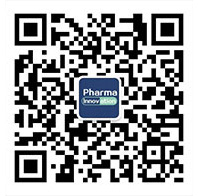A large number of prestigious academic medical centers offer "executive screening" programs designed to allow asymptomatic people to obtain early risk assessment and detection of cardiovascular disease, presumably with the aim of earlier intervention and more favorable outcomes if an abnormality is identified.
The problem is that indiscriminate screening is not only expensive but runs counter to evidence-based recommendations of medical societies for asymptomatic individuals without specific risk factors, say authors of a research letter published January 13 in JAMA Internal Medicine.
"Most of the best and most prestigious cardiology programs in the US have these executive screening programs that charge a lot of money, are not covered by insurance, and have no evidence to back up their value," David Brown, MD, professor of medicine, John T. Milliken Department of Internal Medicine, Cardiovascular Division, Washington University School of Medicine, St. Louis, told theheart.org | Medscape Cardiology.
"These programs provide an institutional stamp of approval on a two-tier system of medicine: those who can afford to buy whatever they want, and the rest of us who can't afford to do so," he added. "They also make a statement that if someone is willing to pay enough money, they can be given whatever test they want, even if there is no evidence to support it."
"Finger in the Eye"
In this new analysis, investigators assessed the cardiovascular examinations offered in these programs at 18 "top hospitals" for cardiology and heart surgery, as ranked by US News and World Report, encompassing 28 programs.
They found that the programs included 12 cardiovascular tests plus a resting electrocardiogram (ECG): abdominal aortic ultrasonography; cardiac calcium score; cardiac stress test (including exercise ECG or echocardiography); cardiovascular counseling; carotid artery ultrasonography; carotid intima-media thickness (IMT); coronary artery CT scan; exercise consultation; lipid panel; lipoprotein(a); and vascular screening.
The most commonly offered tests were a lipid panel and cardiac stress testing, offered in 20 of 28 (71%) and 19 of 28 (68%) institutions, respectively. Cardiac CT scans either to determine the calcium score or to visualize the coronary arteries were included in 12 of the 28 programs (43%).
Two programs included cardiovascular counseling and one included exercise consultation.
The lowest-cost program, at $995, was the Comprehensive Health Assessment at Houston Methodist Hospital, while the highest-cost program, which cost $25,000, was the Premier Executive Health Program at Cleveland Clinic.
Only three programs submitted charges to an insurance carrier.

